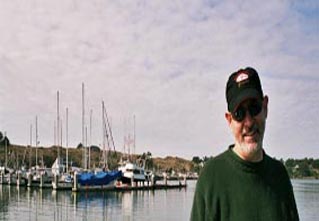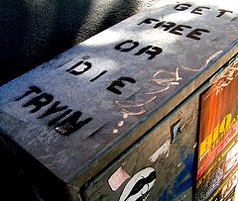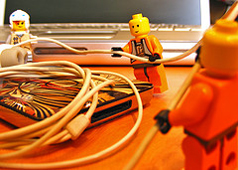This is another segment in the reporting of my social media experiment. To get some context, you can start here (read from the bottom up).
First, let’s get this out of the way. One of the writers I follow is Justin Wise, and he has written a great blog on why it is difficult to make money as a blogger (or as an “expert” for that matter). You should read his post by clicking here. I’ll wait.
The part of the post that resonated for me is highlighted in (most of) the title of this post, but “Don’t ever call yourself an expert” is another great insight. And while the next little bit of this post is about “me” please hang in there, because there is an extrapolation to the moral of the story, which, in some respects, contributes a bit to the storehouse of universal knowledge.
As someone who was dragged kicking and screaming into social media, I can tell you that the temptation is to look for the “monetization” first, and then try to strategize how to get to that money. I can’t tell you how many people I talk/counsel with who, like many of my former students, just “want to know how to pass this class” when it comes to social media. They want the reward, but they want you to do all the work to get them their reward.
I don’t call myself an expert in too many things, and social media is one of the things I am definitely not there. But people consider me an expert (which I find fascinating) in some small way, because I have learned things about social media.
But social media is not my primary field of expertise. Let me say that again, with emphasis: social media is not my primary skill set.
And although I was trained as a conductor (and I think I’m good at it), and as an educator, and serve in church music/worship ministry, my primary skill set is my fascination with learning things. At this stage in my life, I pick and choose (most of the time) what I learn about, but new information is like my apple a day.
I am a practitioner of learning.
But people think I’m an expert, in some small way, because I’ve figured out that it is important, in this time of information avalanche, to be able to communicate what I know–to tell people what I’ve learned.
And that’s the important takeaway here: Everybody knows something that is valuable. Everyone has a story. But if you can’t learn how to communicate your knowledge and your story, it is just that much more internet dodah.
Let me say this too: Telling your story is not about marketing in the traditional sense anymore. People see so much marketing every day that they have become much more sophisticated at discerning the medium from the message.
And finally, this: Real impact comes from telling what you know as a result of what you’ve learned. Which means that, as Wise says, you can’t self-anoint an expert status. But you can help people by letting them know what you know, so that they can avoid making your mistakes, or be more efficient in solving a problem, or help other people by passing along that knowledge.
Which brings me full circle. If you didn’t read Wise’s post and have gotten this far, go here. You’ll benefit from it. I promise.
Are you a learner? Have you figured out how to communicate what you know? Please leave a comment and let me know what you know. I’m always interested in learning.
Ipod shuffle status: 3310 (Streets of Philadelphia – Bruce Springsteen) of 7875
…
Get my EBook The Choir in Modern Worship












You must log in to post a comment.